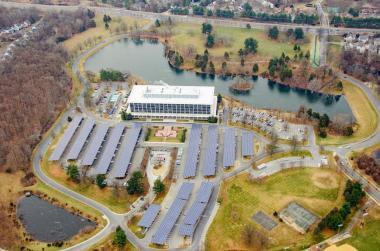About Microgrids
West Newbury is considering a microgrid that could disconnect from the grid to provide an island of self-generated reliable electric power in the event of a widespread and/or prolonged outage. To the extent it produces renewable energy and/or includes smart controllers to manage loads, when connected to the grid a microgrid can also provide clean power, enhance energy efficiency, and improve overall cost-effectiveness. The West Newbury campus would include our public safety building, town offices, annex, and senior housing. This would provide such services as continued governmental operations, shelter, warmth or cooling, and continued in-place power for the senior citizen housing complex. This was discussed at the January 22, 2019 Selectmen’s meeting.
A number of Massachusetts municipalities are investigating microgrids. One example of a grant recipient studying microgrid feasibility is the town of Hull, which is susceptible to prolonged outages during and after severe weather events. In an effort to ensure energy resilience of critical facilities, the Hull Light Department proposes to use an existing 1.7MW wind turbine and backup diesel generators, along with a new energy storage system and solar, to fuel a microgrid. In Hull the microgrid would serve an emergency shelter, the town hall, public works garage, and an affordable housing project.

Some municipalities have moved forward with microgrids. For instance, with private partners Duke Energy Renewables and Schneider Electric, Montgomery County, Maryland, has installed a microgrid at its correctional facility and its public safety complex. The system at the public safety complex includes among other equipment solar canopies in a parking lot.
For some basic Q&As about microgrids, please click here
All photos on this page are of Montgomery County, MD, Public Safety complex microgrid, available here

